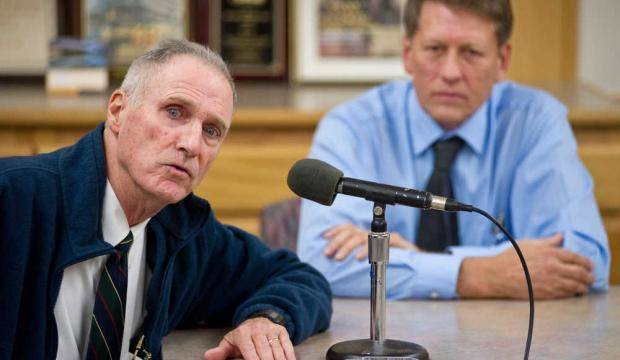On March 12, 1968, Alaska forever changed. That was the day a team of geologists, engineers and drillers confirmed the Prudhoe Bay oil field. The confirmation of a Middle-East sized oil field here, in the United States, made headlines across the globe. Fifty years later, it’s still one of the largest oil fields in North America and one of the 20 largest oil fields ever discovered in the world.
Once the oil field was developed and the Trans Alaska Pipeline constructed, the state for the first time had the ability to support itself. State oil taxation (including royalties) — $141 billion collected to date — funded transportation infrastructure, schools, public safety and the permanent fund. Those oil dollars, averaging 80 percent of state budgets, are what modernized Alaska.
Prudhoe Bay also gave us something maybe even more valuable than oil. It revised what both Alaska and the nation thought it could become by transforming us from a relatively undeveloped state to a land of significant resource-based economic opportunity.
When oil production started in 1977, the amount of recoverable oil at Prudhoe was estimated at 9.6 billion barrels. After that oil was gone, it was thought that the oil field and the trans-Alaska pipeline would have to be shut down and dismantled.
Thanks to its size, Prudhoe Bay became a testing ground for new drilling and production technologies, advancements that extended the life of the field by decades, resulting in nearly 13 billion barrels of production to date.
The experts estimate there’s a lot more oil on the North Slope: 26 billion barrels of conventional oil onshore and in ANWR, 24 billion barrels of heavy/viscous oil and 27 billion barrels offshore. Then there’s one of the world’s largest caches of natural gas, 26 trillion cubic feet at Prudhoe Bay and 8 trillion cubic feet at Point Thomson.
Alaska is already a high-cost region to develop and produce oil. Much of the remaining oil and gas is located far from existing infrastructure, meaning development costs will run into the billions of dollars. That is a significant investment even for the largest of companies. The challenge will be how to drill for it, process it and deliver it to market while still earning a decent return on investment.
Before a final investment decision on any energy field is made, companies must scrutinize the state’s overall investment climate, in other words, taxes, regulatory challenges and access to acreage.
Oil and gas companies readily accept that taxes are a necessary part of doing business in Alaska. After all, their employees are Alaskans, too. They drive on the same roads everyone else does, count on first responders to protect their homes and families and have children enrolled in public schools.
The problem is state policymakers have changed the tax code seven times in 12 years — and there’s yet another tax hike being debated in the Statehouse. So, you can understand that companies are reluctant to invest. A sudden tax increase can make fields costing billions of dollars suddenly uneconomic.
Alaska’s current tax and royalty rates are very fair for our state. At all oil prices, Alaska takes in more oil revenue than the producers who invest the capital and take the risks.
We need to encourage investment, not drive it away with unstable tax policies.
Lower investment means fewer jobs and less revenue for the state and the permanent fund. In other words, less opportunity for everyone. You can see the effects in the fact that last year Alaska experienced its first population decline in four decades and now has the highest unemployment rate in the nation.
North to the Future, our state motto, remains as true today as it was on that historic day 50 years ago when the Prudhoe Bay field was confirmed. We can have a bright and profitable future if we maintain stable tax policies, fair regulations and keep plenty of land open to exploration.
• Bill Corbus is a KEEP Alaska Competitive Board Member and served as Alaska’s Commissioner of Revenue from 2003-2006.

